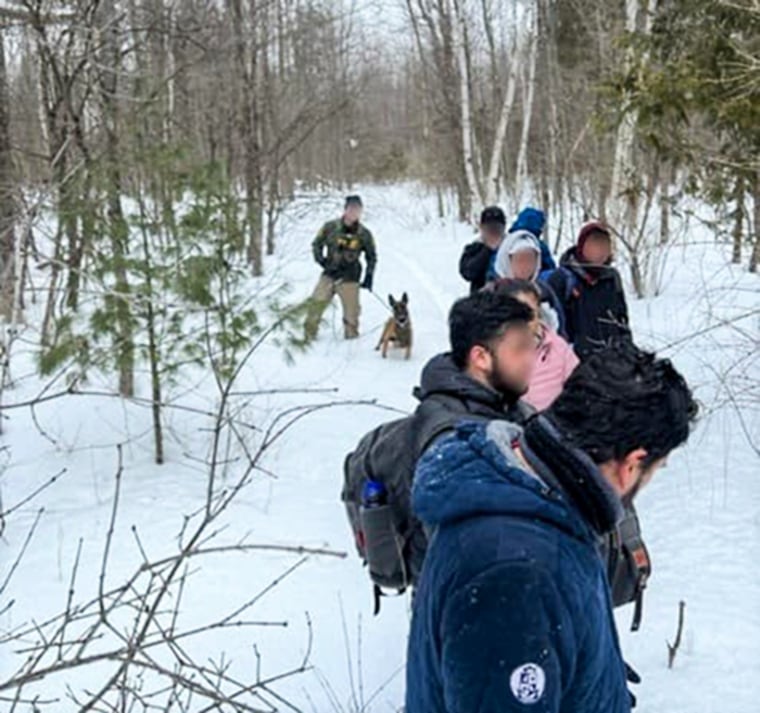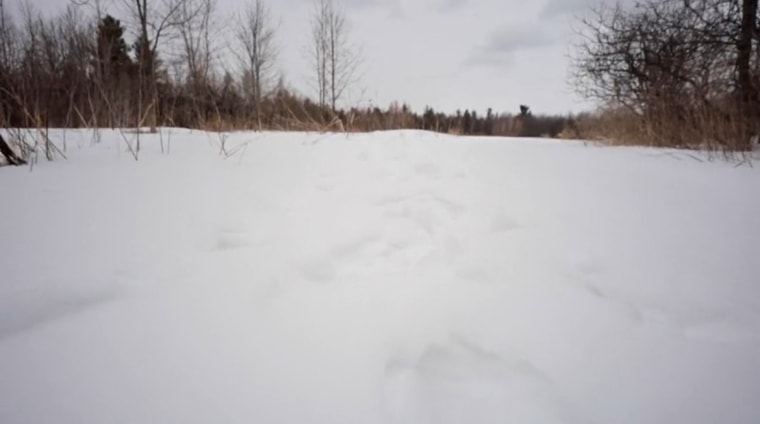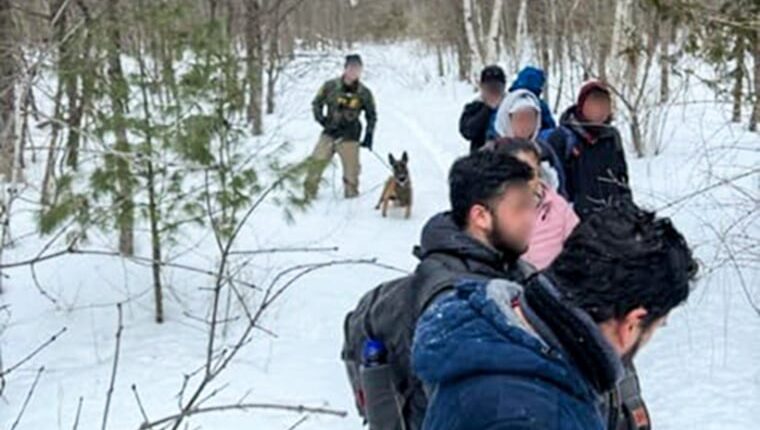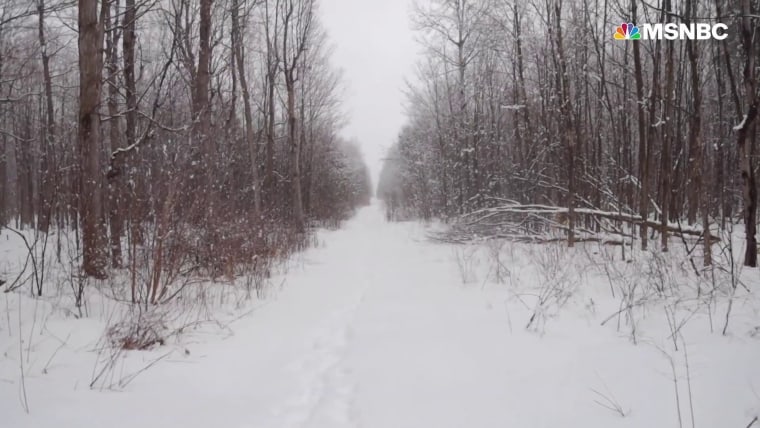On the snowy border between New York and Canada, the local sheriff’s office is calling for the U.S. Border Patrol to put more manpower behind what the locals call a growing crisis: The number of illegal border crossings in the area over the last five months is nearly 10 times what it was over the same time last year, and the border crossers are in danger of freezing to death.
From Oct. 1 to Feb. 28, about 2,000 migrants crossed the border between Canada and New Hampshire, Vermont and New York south through the forests, compared to just 200 crossings in the same period the previous year.
The migrants are mainly from Mexico, and they can travel to Canada without visas before they cross illegally into the U.S., often to reunite with their families.
Last weekend, Clinton County, New York, Sheriff David Favro’s team assisted Border Patrol in rescuing 39 migrants, some whose clothes had frozen to their bodies.

“We are seeing more and more people, and it can be a deadly terrain if you’re not familiar with it,” Favro said.
He said responding to rescues like that has taxed the resources of his department, already stretched thin to cover the residents of his rural county, population 80,000, which shares about 30 miles of border with the Canadian province of Quebec.
“The only way to really be able to cover and protect [the northern border] is boots on the ground,” Favro said.
Just last week, Customs and Border Protection added 25 agents to the area, the Swanton Sector, to deter migration. But Favro and other locals who spoke to NBC News in Mooers, New York, said that’s not enough.
Mooers Fire Chief Todd Gumlaw said he recently helped rescue two Mexican women stuck in an icy swamp in the middle of the night. Gumlaw, along with Border Patrol, local police and EMS workers, was able to render first aid and get the women to a hospital to be treated for frostbite and mild hypothermia after they lost their shoes in the swamp, he said.

“Preservation of human life is first and foremost with my department. We put [immigration status] to the back of our mind,” Gumlaw said.
The Mooers/Champlain region is a clump of small blue-collar residences and farms, where, according to locals, “everyone knows everyone” and properties can be several blocks apart, adding a sense of unease among some of the locals witnessing the mass migration in the region.
According to local first responders, southbound migrants often seek shelter in empty sheds and barns to shield themselves from the cold.
April Barcomb, a Mooers resident, said she has had migrants show up at her doorstep and is now saving up for security cameras.
“It’s not something I would usually do,” she said. “But it makes me think twice. And with the kids and the family, I gotta install cameras.”
While most locals who spoke to NBC News said they understood that most migrants crossing the region aren’t threats, neighbors are keeping their eyes open for unusual activity.
“People are scared,” a Champlain County resident said. “It’s the fear of the unknown. They’re [neighbors] worried about their safety, because they don’t know these people.”
Most of the migrants are Mexicans, who are frequently blocked from crossing the southern U.S. border and believe they will have an easier time if they fly to Canada and then cross into the U.S. from the north.
According to a CBP spokesperson, the Swanton Sector has been the site of more than 67% of all migrant crossings at the northern border across all eight sectors through February.
Unlike the southern border, where over 16,000 Border Patrol agents are responsible for staffing roughly 2,000 miles, about 2,000 border agents patrol the 5,000-mile border between the U.S. and Canada, which includes Alaska’s land boundaries, making it the longest international land border in the world.
New Hampshire Gov. Chris Sununu, a Republican, asked Homeland Security Secretary Alejandro Mayorkas in a letter Tuesday to step up enforcement along his state’s 51-mile border with Canada or allow his police forces more authority to do so.
“Over the last few months, the State of New Hampshire has attempted to assist the federal government in securing our northern border. These offers of assistance have been repeatedly rejected. The Biden administration has cut funding and hindered the state’s ability to assist in patrolling the northern border,” Sununu said.
A spokesperson for CBP said the additional agents who were just sent to the Swanton Sector will help deter migration.
Source: | This article originally belongs to Nbcnews.com











